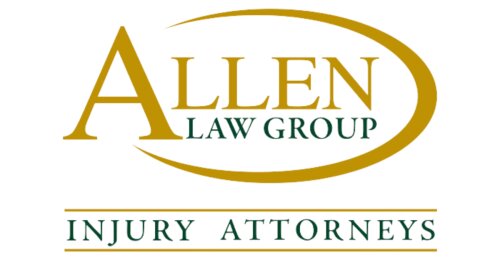Best Class Action Lawyers in Chicago
Share your needs with us, get contacted by law firms.
Free. Takes 2 min.
List of the best lawyers in Chicago, United States
About Class Action Law in Chicago, United States:
Class action law in Chicago, United States allows a group of individuals who have suffered similar harm or have similar legal claims to file a lawsuit collectively against the responsible party. It provides an efficient way to seek justice and compensation for a large number of people who have been affected by the same issue. Class action lawsuits can cover a wide range of matters, including consumer protection, employment disputes, product liability, and securities fraud.
Why You May Need a Lawyer:
There are several situations where you may require legal help in a class action lawsuit:
- If your rights have been violated, and you believe you are part of a group of individuals who have suffered the same harm.
- If you wish to join an existing class action or initiate a new one against the responsible party.
- If you have received a notice of a class action lawsuit and want guidance on your rights and options.
- If you need assistance in understanding the legal process, filing the required documents, and representing your interests in court.
Local Laws Overview:
Key aspects of local laws that are particularly relevant to class action lawsuits in Chicago, United States:
- Class action lawsuits are governed by both federal and state laws. In Chicago, state laws play a crucial role in the litigation process.
- Under Illinois law, a class can be certified if it meets specific criteria, including numerosity (a large enough number of individuals affected), commonality (common legal issues), typicality (representative claims), and adequacy of representation (competent class representative and counsel).
- Chicago follows the doctrine of "mandatory notice" that requires potential class members to be notified about the lawsuit and their right to opt-out or participate in the class action.
- The statute of limitations sets a time limit within which a class action lawsuit must be filed after the harm occurred. It is important to consult with an attorney promptly to ensure compliance with these deadlines.
Frequently Asked Questions:
Q: How do I know if I am eligible to be part of a class action lawsuit?
A: You may be eligible if you have suffered harm or damages similar to a larger group of individuals, often due to the same incident, product, or action. Consult with an attorney to evaluate your case and determine eligibility.
Q: Can I opt-out of a class action lawsuit?
A: Yes, in some cases, you have the right to opt-out of a class action lawsuit. This means you would pursue your individual claim separately. Consult with an attorney to understand the implications and your options.
Q: How much will it cost to hire a lawyer for a class action lawsuit?
A: Many class action attorneys work on a contingency fee basis, meaning they only receive payment if they successfully recover compensation on your behalf. It is essential to discuss fee arrangements during the initial consultation.
Q: How long does a class action lawsuit typically take?
A: The duration of a class action lawsuit varies depending on several factors, including the complexity of the case, the number of parties involved, and the court's schedule. It can take several months to several years to reach a resolution.
Q: What can I expect to recover from a class action lawsuit?
A: The potential compensation varies depending on the nature of the harm. It can include monetary damages, reimbursement for expenses, injunctive relief, or changes in business practices. An attorney can provide a better understanding based on the specific circumstances of your case.
Additional Resources:
For more information and assistance related to class action law in Chicago, consider the following resources:
- Illinois Attorney General's Office
- The Chicago Bar Association
- Legal Aid organizations in Chicago
- Cook County Circuit Court's website
Next Steps:
If you require legal assistance in a class action lawsuit, follow these steps:
- Gather all relevant documents and information regarding your case.
- Research and consult with experienced class action attorneys in your area.
- Schedule a consultation to discuss your case, evaluate options, and understand the attorney's fee structure.
- Engage an attorney who has significant experience in class action litigation.
- Work closely with your attorney, providing all necessary information and cooperating throughout the legal process.
Lawzana helps you find the best lawyers and law firms in Chicago through a curated and pre-screened list of qualified legal professionals. Our platform offers rankings and detailed profiles of attorneys and law firms, allowing you to compare based on practice areas, including Class Action, experience, and client feedback.
Each profile includes a description of the firm's areas of practice, client reviews, team members and partners, year of establishment, spoken languages, office locations, contact information, social media presence, and any published articles or resources. Most firms on our platform speak English and are experienced in both local and international legal matters.
Get a quote from top-rated law firms in Chicago, United States — quickly, securely, and without unnecessary hassle.
Disclaimer:
The information provided on this page is for general informational purposes only and does not constitute legal advice. While we strive to ensure the accuracy and relevance of the content, legal information may change over time, and interpretations of the law can vary. You should always consult with a qualified legal professional for advice specific to your situation.
We disclaim all liability for actions taken or not taken based on the content of this page. If you believe any information is incorrect or outdated, please contact us, and we will review and update it where appropriate.












